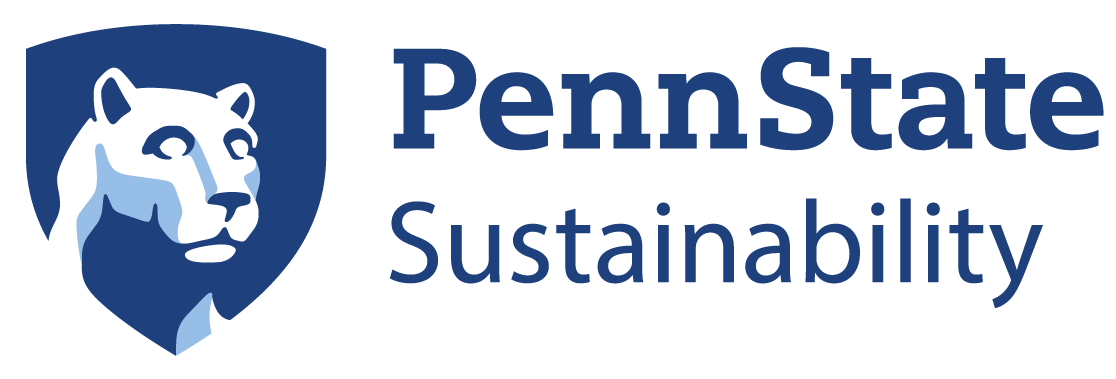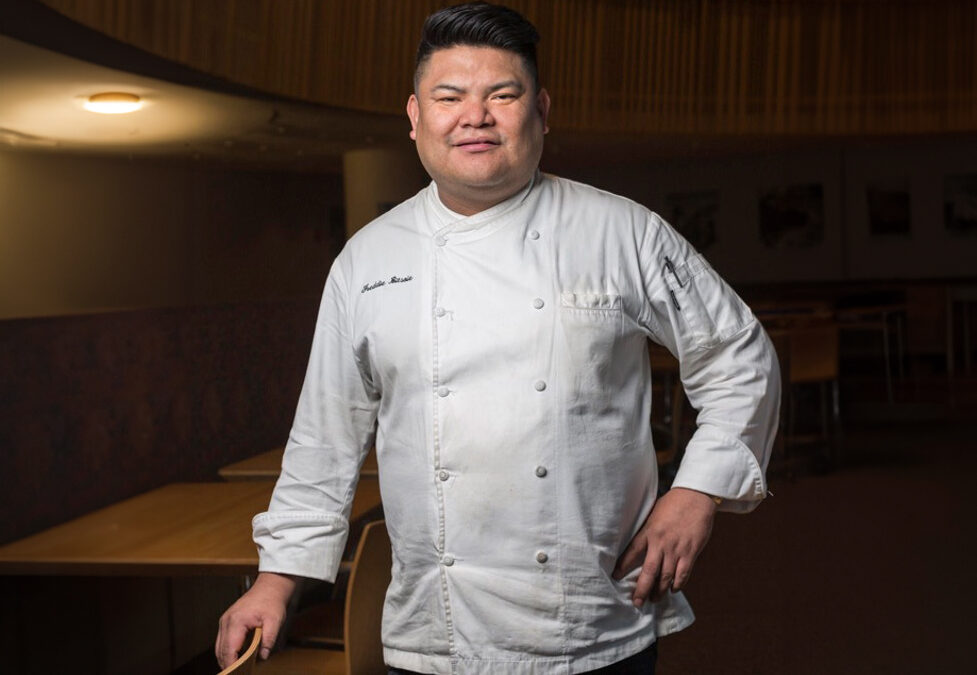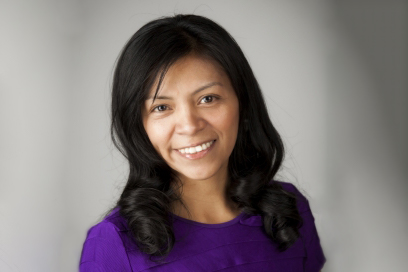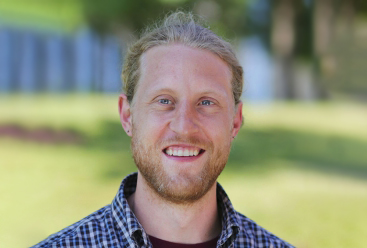Heide Gibson, Associate Director & Student Pantry Manager for The Lion’s Pantry
We recently interviewed Heide Gibson, Associate Director and Student Pantry Manager for The Lion’s Pantry. Gibson shared her experience spreading awareness about food insecurity and further student work toward finding strategic solutions for students experiencing hunger and mitigating food insecurity.
Behind East Halls and adjacent to the Blue Band Building lies the first student-run food pantry on Penn State’s University Park campus. The pantry is located right between Lion Surplus and the Blue Band Building. There, Gibson works with faculty, staff, and student volunteers to fully stock and maintain the Lion’s Pantry.
Local leader Gibson has implemented micro-level initiatives to tackle food insecurity on campus. Gibson has worked closely with students to remove barriers hindering accessibility to students on campus. Gibson’s work tackles one of the most significant social issues globally: hunger.
This interview has been edited for length and clarity.
When did your sustainability journey begin?
Sustainability has always been a part of me. I grew up in the generation of Sally Struthers, Children’s Miracle Network commercials, and the Jerry Lewis telethons. Unless you had cable, every local TV station ran the telethon to fundraise for particular needs. The Children’s Miracle Network commercials mainly got to me. They showed communities in Africa where you can sponsor a child to ensure they have enough food. I was always so concerned for those children and their families.
I would use my allowance to sponsor a child, and even when I didn’t budget appropriately, my stepdad would always make sure I made that payment. My mom pointed out years ago that I’m someone who always roots for others. People should have what they need. It’s as simple as that.
Can you describe what The Lion’s Pantry is about to those unfamiliar with the organization?
The Lion’s Pantry is a student organization that was student-founded, student-run, and student-led. It was founded in 2014 by some students who noticed they had friends struggling with food insecurity. Now, we are getting ready to celebrate the organization’s 10th anniversary.
How would you describe the mission of the Lion’s Pantry? How does the Lion’s Pantry align with social sustainability?
The pantry’s mission is to address student food insecurity by reducing stigma, encouraging service, and increasing awareness of food insecurity on campus. The Lions Pantry aligns with social sustainability in the sense that it offers an action behind the desire to not just acknowledge but reduce food insecurity. We empower our community to help us reduce food insecurity. We are leveling the playing field by providing individuals with tools to enable them to succeed.
When did you first become involved with the Lion’s Pantry, and what provoked you to integrate social sustainability into your career?
I came to Penn State in October 2015 from Northern Arizona University in Flagstaff, Arizona. I was in a student affairs fundraising role at NAU and was approached by an advisor of a student group establishing a food pantry. They were doing national research to determine how they wanted to run, manage, and maintain their food pantry. I thought that was incredible. I loved working with those students and was amazed by their initiative.
When I got to Penn State (my original position was with the Division of Development and Alumni Relations) and settled into my new community, I reached out to find out if there was a student food pantry here. I immediately signed up for a payroll deduction. For the seven years I was with DDAR, Leslie Pillin and her team were wonderful at helping me provide updates to alumni who supported the Pantry. After the pandemic, I realized that I was very weary of fundraising, and this opportunity opened for me to become the doer and the steward of the funds.
Can you share any insight into your position as the organization’s manager? What are your primary roles and responsibilities?
My goal is to support the students and ensure they have the operational foundation to make and implement decisions to move the pantry and its mission in the direction they want to explore. It’s a student organization, but it’s an affiliated student org with the University, so we have responsibilities. I ensure those responsibilities are met while the student executive team, student workers, and volunteers at the pantry have the opportunity for experiential learning. The best way to learn to be a leader and make a difference is to be able to make decisions and learn from them. If you never make bad decisions, you’ll never learn to make good decisions, get comfortable with the decision-making process, and not be afraid of failure. I hold the space for them to have those experiences and to grow while still upholding the responsibilities and operational expectations of the pantry.
What other new initiatives have The Lion’s Pantry strived to implement over the years? What do you envision for the Lion’s Pantry in the future?
During the summer of 2022, the pantry facility was renovated, ushering in a new chapter for the pantry. We created a foundation so that we could be responsive and pivot to understand the pantry’s overall needs. Since June 2022, we have had paid intern positions to offer consistent hours at the pantry.
We brought refrigeration into the pantry to offer perishable items. While trying to be efficient with the space and the products that we offer, we also brought in a high-density shelving system into the pantry’s storage area. The student executive team has also revamped its structure. They have added new positions, including two facilities directors, an outreach director, a food drive director, and a food access director, to try to make everything that we do as impactful as possible.
One of the things about this particular pantry is that we don’t follow the patterns, rhythms, and needs of what we all think of when we think of a community food pantry. We can’t manage the donation of thousands of cans at each semester’s end. There is a tradition of wanting to support our communities around Thanksgiving and Christmas. At our pantry, there isn’t a demand here on campus for that. We’re trying to promote these differences how to help The Lion’s Pantry, and how to be a partner with the pantry. We’ll be doing a lot of educational initiatives and training for that in the future.
We implemented software used industry-wide in the food pantry setting called “Pantry Soft”- an inventory management platform. We want to make sure that we can collect data relevant to the University Park campus to help inform how we can best mitigate food insecurity on campus and what we can do to best serve this particular population. We can also use that platform to distribute anonymous questionnaires as the executive team is trying to make decisions to improve the pantry. There’s a lot of promise with this new platform.
For individuals wanting to donate to the Lion’s Pantry, what are some ‘high-demand items’ needed? Do these items change throughout the year?
High-demand items lately have been olive oil, vegetable oil, sugar, toilet paper, paper towels, and any toiletry or household items like dish soap, cleaning supplies, shampoo, conditioner razors, toothbrushes, and toothpaste. Our Food Drive Director will be managing a Sign-up Genius, where, instead of getting those large donations from everybody once or twice a year, we encourage the Penn State community to partner with us weekly or monthly. We will have specific food drives for which individuals or teams can sign up with a weekly delivery date. We hope that that will create awareness and hopefully assist the pantry to know what donations are coming in and when. We will then be able to spend our donated funds to purchase items we can’t accept as donations, such as perishable items, produce, and dairy items.
What partnerships have helped spread awareness about food insecurity amongst college-aged adults across campus?
Across the campus at University Park, we have been forming some very important partnerships. The housing and food services team, for one, is an incredibly important partnership. It allows us to purchase inventory to supplement our donations. The HFS team helped raise awareness about The Lion’s Pantry. For example, we get calls from Penn State Athletics stating, “We’ve got a bunch of Gatorade. Do you need it?” People are constantly reaching out to ask how they can help.
The Food Recovery Network is a student organization doing tremendous work and growing rapidly. Through their partnership with the dining halls, we can offer packaged meals, which are incredibly popular. We’re expanding that partnership next semester to share space with the Food Recovery Network so they can utilize the pantry to package meals.
The Student Farm donates produce to the pantry and also sells us produce. We have the honor of purchasing fresh produce grown on campus. The team in Retail Dining and the campus markets provide us with advice, ideas, and team training and have been fantastic partners. It’s incredible how ready the community is to support the Pantry.
Could you explain how the Lion’s Pantry relates to the United Nations Sustainable Development Goals: the first goal is ‘No Poverty’, the second is ‘Zero Hunger,’ and the third is ‘Good Health And Well-Being’?
The United Nations has a University of Peace established in Costa Rica. I took a couple of certificate courses online with them and learned about the Sustainable Development Goals. These goals are just different words for the pantry’s mission. We want to create awareness, reduce stigma, and encourage service. Most importantly, we must understand that zero hunger doesn’t mean calories. It means nutrition and health, too. We want to help students have the ability to stay awake during class. Putting a Band-Aid on hunger with Ramen does not solve this problem. This will not increase your ability to succeed and become comfortable with the material that you’re making all these sacrifices to learn. Food insecurity is a whole host of things. We have a diverse community here, and food needs look different to everybody.
What advice would you give to individuals passionate about finding solutions to fight world hunger?
I would encourage them to start where they are and keep it simple. Take on something you can sustain, even sending one toothbrush at a time to any community organization or food pantry. Look locally. An individual making big sweeping gestures worldwide is not as impactful as the 1 million tiny steps a million different people take. Keep plugging away and asking how to help. Don’t assume you know how to help even if you’re familiar with the mission and the end goal.





